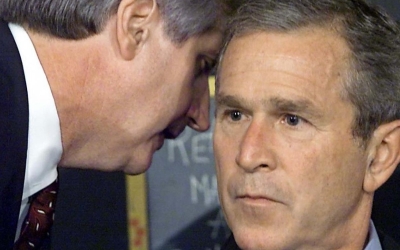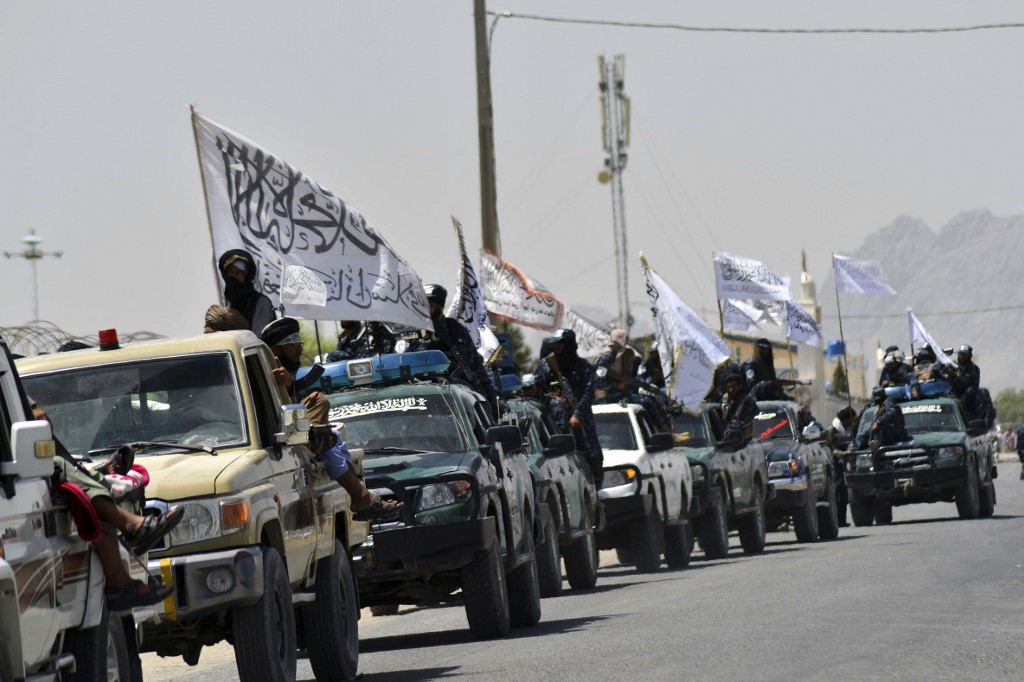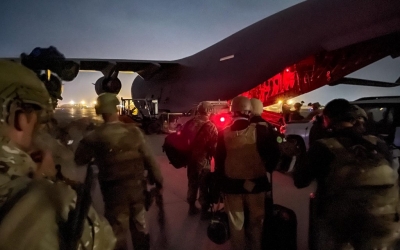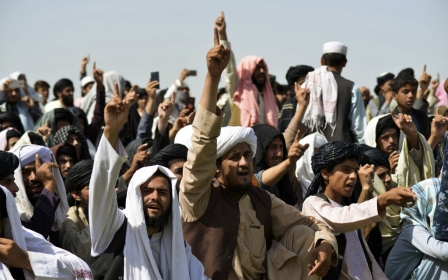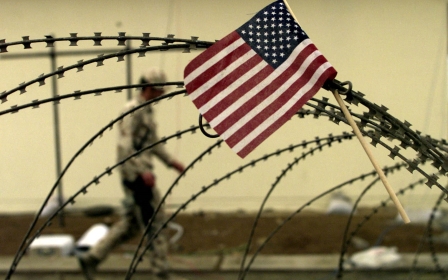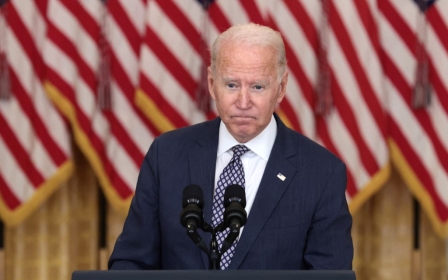Afghanistan debacle shows the political bankruptcy of US liberalism
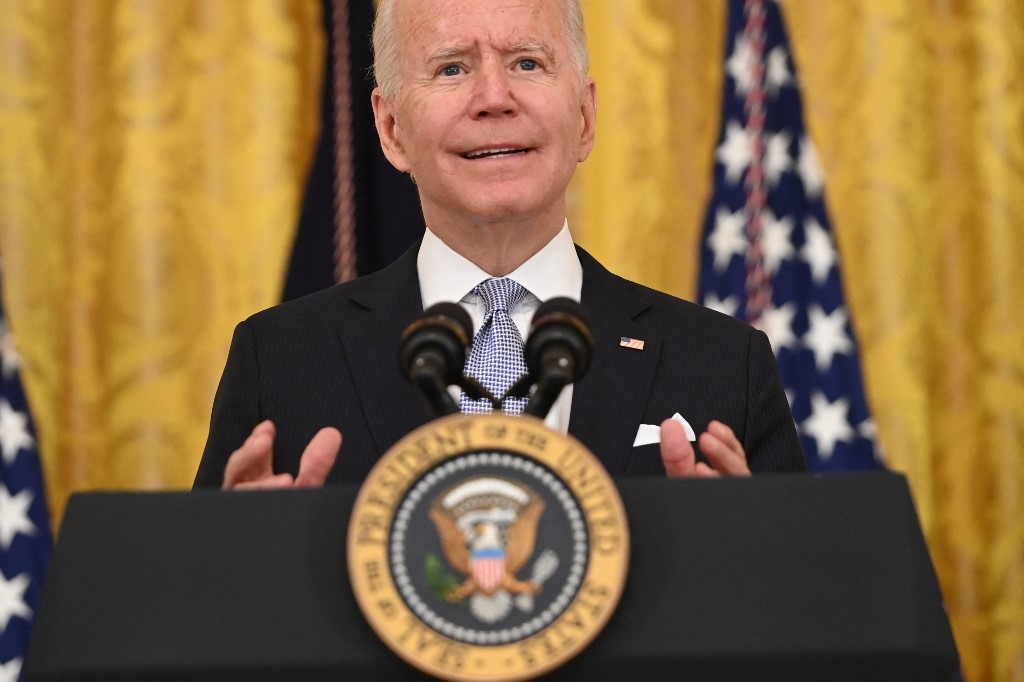
As the US-backed devastation in Afghanistan continues to play out in news cycles, alongside critiques of the US’s predictable reluctance to accept Afghan refugees from the very country where its meddling fuelled this disaster, I find myself retracing the political timeline of a violent, racist and unethical phase of US war-mongering after 9/11.
My interest is not in the actions and discourse of the Republican Party or the broader right-wing, which has descended into white nationalism, colonialism, imperialism and xenophobia. Rather, my focus is on US establishment liberalism, which has served as the invisible anchor of the US “war on terror” and related endeavours.
Democrats' role in all of this was not to present a voice of opposition, but rather to engage in a tug-of-war over which side could be the most authentically patriotic - ie, pro-war
By providing the right with the ideological armature to justify its violent incursions on “human rights” grounds, and by disguising cosmetic critiques of presidential behaviour as structural complaints, the Democratic establishment continues to pave the way for the violent presumptions and logic of the “war on terror”.
On 20 September 2001, then-US President George W Bush bombastically declared the war’s launch by asserting: “Every nation in every region now has a decision to make: either you are with us, or you are with the terrorists.”
Much ink has been spilled on this ominous phrase, which served as the prelude to decades of war-making abroad, including the sociopolitical evisceration of Afghanistan and Iraq via the reconstruction of shell governments aligned with the interests of US war profiteering and extraction. Meanwhile, the placeless-ness of the phrase “every nation in every region” perfectly summed up how this endless war would include a domestic angle, as we witnessed the erosion of civil liberties for Muslims and Arab Americans.
Violence and deprivation
Here and abroad, the US declared the unquestionable power to subject people to violent seizure, detention and incapacitation, whether inflicted upon the tortured bodies of those unjustly detained in Guantanamo Bay, or upon countries battered by bombs, soldiers and hired mercenaries. All bodies, individual or national, identified as “terrorists” would be swiftly met with violence and deprivation, unmitigated by the dictates of international law or more life-affirming constructions of justice.
This was a war that the US rhetorically justified as between the so-called freedom-loving West, especially “America”, and those who “hate our freedoms”. As such, the US granted itself limitless authority to dispense any and all violence deemed necessary to counter “a radical network of terrorists and every government that supports them”.
Democrats’ role in all of this was not to present a voice of opposition, but rather to engage in a tug-of-war over which side could be the most authentically patriotic - ie, pro-war - and whose ideological vision for war-making would win out. The “war on terror” enjoyed wide bipartisan support.
As Nathan Akehurst writes in Jacobin: “The stated motives for the Afghan War - catching Osama Bin Laden, then defeating the Taliban, then building a stable country with western-style institutions - were in constant flux. But with political direction confused, a similar choose-your-own-adventure approach took place in warfighting as well. Military traditionalists who believed that the army was there to kill ‘bad guys’ ... more often found themselves arguing for a less expensive and less protracted war than liberal militarists who wanted to use an expanded army to enforce their conception of the good.”
Bolstering war
Establishment Democrats’ role in bolstering the war shouldn’t come as a surprise: Democrats are guided by liberalism as an ideology, but thinkers and scholars such as Lisa Lowe have shown how the racially, sexually and economically limited notions of “freedom” encapsulated within traditional liberalism have allowed for this ideology to be an enabler, rather than an antagonist, to oppressive projects such as imperialism, enslavement, white supremacy, colonialism and racial capitalism.
Rafia Zakaria recently wrote in The Nation that it was the white, liberal, elite feminists of the Feminist Majority Foundation, and their campaign to “End Gender Apartheid in Afghanistan” that provided the Bush regime further justification to invade, bomb and occupy Afghanistan.
“By November [2001], first lady Laura Bush was arguing that the reason for the war was to ‘liberate Afghan women,’” Zakaria writes. “… But groups like the Revolutionary Association of the Women of Afghanistan, a political organization that has denounced religious fundamentalism since its founding in 1977, opposed the US attacks and the US-backed government. Afghan feminists never asked for Meryl Streep’s help - let alone US air strikes.”
The relative ease with which a then-Republican US administration was able to justify the US military incursion demonstrates the easy convergence between US liberalism and conservatism.
US liberalism has relatively little issue with entrenching its depoliticised notion of individual “human rights” within a militaristic framework, as exemplified in 2016 by the liberal fanfare surrounding then-US President Barack Obama’s lifting of a ban on transgender soldiers serving in the military, or the outcry that followed then-President Donald Trump’s reinstatement of the ban in 2017. Each response further exemplified military service and its hidden violence as the ultimate expression of liberal progress, rather than questioning nationalist militarism as a harbinger of advancement.
The flipside of this equation is the war-making contention that places such as Afghanistan, Iraq and Palestine are bastions of homophobia, violent patriarchy and subhuman despotism, whose only “cure” comes through the killing apparatuses of the US and Israeli colonial and imperial regimes. Nowhere within the liberal-to-right spectrum is there an alternative to an oppressive status quo that seeks the end of military and imperial projects of conquest, nor an acknowledgement that structures of state-sanctioned violence, such as the military and police, are themselves staunch deprivers of human rights.
'Coercive diplomacy'
Consider the circumstances surrounding recent US elections. 2008 saw the election of the US’s first Black president by many who were supposedly fed up with the Bush administration’s various transgressions of international law and domestic civil liberties.
But few liberals batted an eye when Obama went on to exponentially increase Bush’s drone strike programme and discriminatory surveillance practices, in addition to undermining Black Lives Matters’ structural critique of policing during his second term, something he has continued to do even past his presidency. These are not disconnected concerns. The technologies and tactics honed in Iraq and Afghanistan have played a direct role in the militarisation of US police.
US liberalism is not only incidental to veritable liberation - it is a strategic and disastrous detriment
Liberal frameworks surrounding the election contest between Donald Trump and Hillary Clinton in 2016 focused on the significance of electing “the first woman president” and opposing Trump’s misogyny, racism and sexism - a dichotomy that ignored Clinton’s robust support for war, including the war on Iraq and Libya. Clinton justified her 2002 vote of support for the former by saying: “I believe in coercive diplomacy.”
Also noteworthy are Clinton’s astoundingly racist comments defending mass incarceration in the US because it targets “super-predators” who need to be brought “to heel”.
While 2020 was framed as an election of existential proportions, Joe Biden (whose political history included playing a pivotal role in shaping the current US crisis of racialised mass incarceration) has expanded Islamophobic and racist policies countering so-called “extremists”, increased immigrant detention, and pledged to increase police funding.
Strategic amnesia
Biden’s recent justification for the circumstances of the US withdrawal from Afghanistan displayed a strategic amnesia regarding his country’s decades-long interference and strangulation of organic political development within the nation, while carefully leaving intact the “war on terror’s” dehumanising presumptions about the unrestricted right to dispense force and violence against all deemed to be “terrorists”.
Indeed, US air strikes continue to kill people in Afghanistan, even after this declaration of withdrawal. As Austro-Afghan journalist Emran Feroz notes: “We see how the war on terror in Afghanistan started and how it is ending now: it’s with drones and civilian casualties.” The Biden administration’s strategy to maintain a regional presence through a combination of drones, long-range bombers and spy networks also raises the question of just how literal the so-called “end” of the war will really be.
The aforementioned elections emerged within the wider backdrop of the anti-war movements of the early 2000s, and the recent, Black-led activism calling for the defunding and abolition of police and prisons. In each instance, liberalism parodied the political energy from these radical grassroots movements by redirecting structural critiques of militarism, policing and prisons to matters of individual identity and comportment, as well as vastly individualised (and thus depoliticised) articulations of “human rights”.
Twenty years on, it should be more than painfully clear that the true and lasting procurement of rights, justice and freedom for all is not about diversifying the dispensers of bullets, bombs and cages, or refining the PR behind their deployment, but rather about ending programmes of war-making, military and imperial intervention abroad, and racial policing in the US in the first place.
But US liberalism, it seems, is fine with such oppressive systems remaining largely intact, so long as their defenders present and defend them somewhat more eloquently than their right-leaning counterparts. As such, US liberalism is not only incidental to veritable liberation - it is a strategic and disastrous detriment.
The views expressed in this article belong to the author and do not necessarily reflect the editorial policy of Middle East Eye.
Middle East Eye propose une couverture et une analyse indépendantes et incomparables du Moyen-Orient, de l’Afrique du Nord et d’autres régions du monde. Pour en savoir plus sur la reprise de ce contenu et les frais qui s’appliquent, veuillez remplir ce formulaire [en anglais]. Pour en savoir plus sur MEE, cliquez ici [en anglais].



